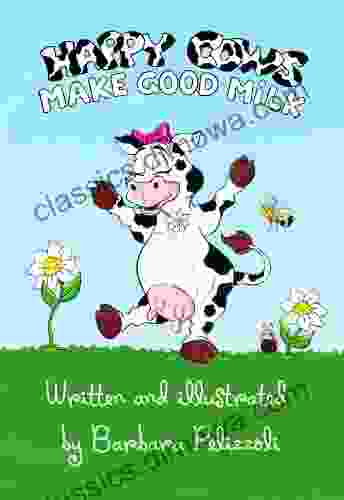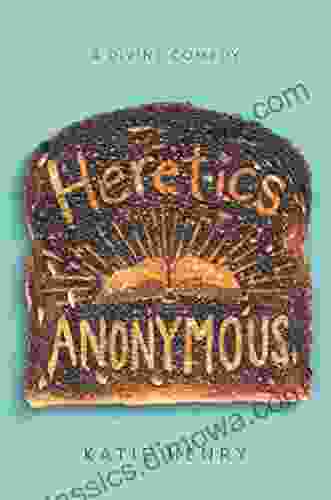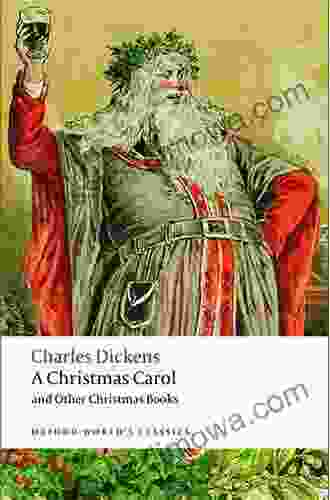Happy Cows Make Good Milk: The Essential Guide to Animal Welfare and Dairy Production

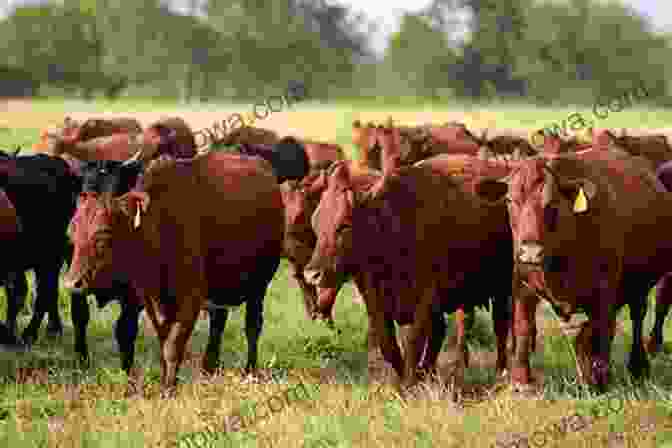
5 out of 5
| Language | : | English |
| File size | : | 1548 KB |
| Text-to-Speech | : | Enabled |
| Screen Reader | : | Supported |
| Enhanced typesetting | : | Enabled |
| Lending | : | Enabled |
| Print length | : | 48 pages |
In a world where consumers are increasingly concerned about the ethical treatment of animals, the dairy industry has come under scrutiny. Consumers want to know where their milk comes from and how the cows that produce it are treated. This has led to a growing demand for milk from cows that are raised in humane conditions.
The book Happy Cows Make Good Milk provides a comprehensive overview of animal welfare in the dairy industry. The book covers everything from the basics of cow care to the latest research on the effects of stress on milk production.
The book is written by two experts in the field of animal welfare: Temple Grandin and Catherine Johnson. Grandin is a world-renowned animal welfare scientist and Johnson is a veterinarian and dairy farmer. Together, they have over 60 years of experience in the dairy industry.
Happy Cows Make Good Milk is an essential resource for anyone who wants to learn more about animal welfare in the dairy industry. The book is also a valuable tool for dairy farmers who want to improve the welfare of their cows.
The Importance of Animal Welfare
Animal welfare is the physical and mental well-being of animals. It includes their health, nutrition, environment, and behavior. Animals that are well-cared for are less likely to get sick, have fewer behavioral problems, and produce more milk.
There are many benefits to good animal welfare. These benefits include:
* Improved milk quality * Reduced risk of disease * Fewer behavioral problems * Increased productivity * Improved profitability
The Five Freedoms
The Five Freedoms are a set of principles that define the minimum standards for animal welfare. The Five Freedoms are:
1. Freedom from hunger and thirst 2. Freedom from discomfort 3. Freedom from pain, injury, or disease 4. Freedom to express normal behavior 5. Freedom from fear and distress
The Five Freedoms are essential for the well-being of dairy cows. Cows that are not able to meet their basic needs are more likely to get sick, have behavioral problems, and produce less milk.
Dairy Production and Animal Welfare
The dairy industry has a long history of animal welfare concerns. In the past, cows were often kept in cramped and unsanitary conditions. They were also subjected to painful procedures, such as dehorning and tail docking.
In recent years, there has been a growing awareness of the importance of animal welfare in the dairy industry. Consumers are demanding milk from cows that are raised in humane conditions. This has led to a number of changes in the way that dairy cows are managed.
Today, most dairy cows are raised in large, open pastures. They have access to fresh air, sunshine, and exercise. They are also provided with a balanced diet and regular veterinary care.
These changes have led to a significant improvement in the welfare of dairy cows. Cows that are raised in humane conditions are healthier, happier, and more productive.
The Future of Dairy Production
The future of dairy production is bright. Consumers are increasingly demanding milk from cows that are raised in humane conditions. This is leading to a number of changes in the way that dairy cows are managed.
In the future, we can expect to see even more dairy farms adopting humane practices. We can also expect to see new technologies that improve the welfare of dairy cows.
The future of dairy production is in the hands of consumers. By choosing to buy milk from farms that prioritize animal welfare, consumers can help to create a more humane and sustainable dairy industry.
Happy Cows Make Good Milk is an essential resource for anyone who wants to learn more about animal welfare in the dairy industry. The book is also a valuable tool for dairy farmers who want to improve the welfare of their cows.
By choosing to buy milk from farms that prioritize animal welfare, consumers can help to create a more humane and sustainable dairy industry.
5 out of 5
| Language | : | English |
| File size | : | 1548 KB |
| Text-to-Speech | : | Enabled |
| Screen Reader | : | Supported |
| Enhanced typesetting | : | Enabled |
| Lending | : | Enabled |
| Print length | : | 48 pages |
Do you want to contribute by writing guest posts on this blog?
Please contact us and send us a resume of previous articles that you have written.
 Book
Book Novel
Novel Page
Page Chapter
Chapter Text
Text Story
Story Genre
Genre Reader
Reader Library
Library Paperback
Paperback E-book
E-book Magazine
Magazine Newspaper
Newspaper Paragraph
Paragraph Sentence
Sentence Bookmark
Bookmark Shelf
Shelf Glossary
Glossary Bibliography
Bibliography Foreword
Foreword Preface
Preface Synopsis
Synopsis Annotation
Annotation Footnote
Footnote Manuscript
Manuscript Scroll
Scroll Codex
Codex Tome
Tome Bestseller
Bestseller Classics
Classics Library card
Library card Narrative
Narrative Biography
Biography Autobiography
Autobiography Memoir
Memoir Reference
Reference Encyclopedia
Encyclopedia Brendon Baker
Brendon Baker Marlene Perez
Marlene Perez Carlos Dall Asta
Carlos Dall Asta Stanley J Feldman
Stanley J Feldman Grier Cooper
Grier Cooper Mike Chapman
Mike Chapman Spencer Griffith
Spencer Griffith Barbara Pym
Barbara Pym Javon Bates
Javon Bates Raul Guisado
Raul Guisado Reginald Rose
Reginald Rose K Lang Slattery
K Lang Slattery E A Rice
E A Rice Syougo Kinugasa
Syougo Kinugasa Julika Sonnschein
Julika Sonnschein Arthwr Bass
Arthwr Bass Barrie Dolnick
Barrie Dolnick Mark Woods
Mark Woods Ian Johnstone
Ian Johnstone Kevin Brougher
Kevin Brougher
Light bulbAdvertise smarter! Our strategic ad space ensures maximum exposure. Reserve your spot today!
 Stephen KingFollow ·19.8k
Stephen KingFollow ·19.8k Neil ParkerFollow ·11.7k
Neil ParkerFollow ·11.7k Bob CooperFollow ·17.1k
Bob CooperFollow ·17.1k Alfred RossFollow ·9.5k
Alfred RossFollow ·9.5k Dennis HayesFollow ·14.4k
Dennis HayesFollow ·14.4k Chase SimmonsFollow ·10.8k
Chase SimmonsFollow ·10.8k Roy BellFollow ·10.7k
Roy BellFollow ·10.7k Ian PowellFollow ·7.8k
Ian PowellFollow ·7.8k

 Marcus Bell
Marcus BellHigh Lonesome: A Literary Journey into the Heart of the...
<p>Hannah weaves a intricate...

 Gabriel Hayes
Gabriel HayesRediscover Gideon Green's Timeless Adventures in "Gideon...
Embark on an Extraordinary Journey with...
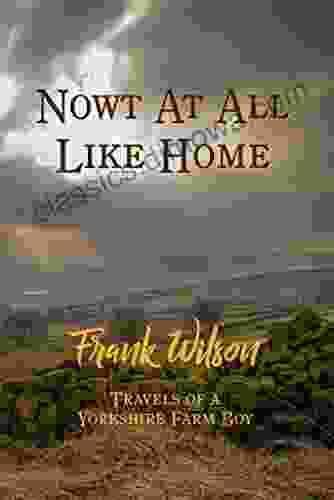
 Samuel Taylor Coleridge
Samuel Taylor ColeridgeEscape to a Literary Haven: Discover the Enchanting World...
Embark on an Extraordinary Literary...
5 out of 5
| Language | : | English |
| File size | : | 1548 KB |
| Text-to-Speech | : | Enabled |
| Screen Reader | : | Supported |
| Enhanced typesetting | : | Enabled |
| Lending | : | Enabled |
| Print length | : | 48 pages |


